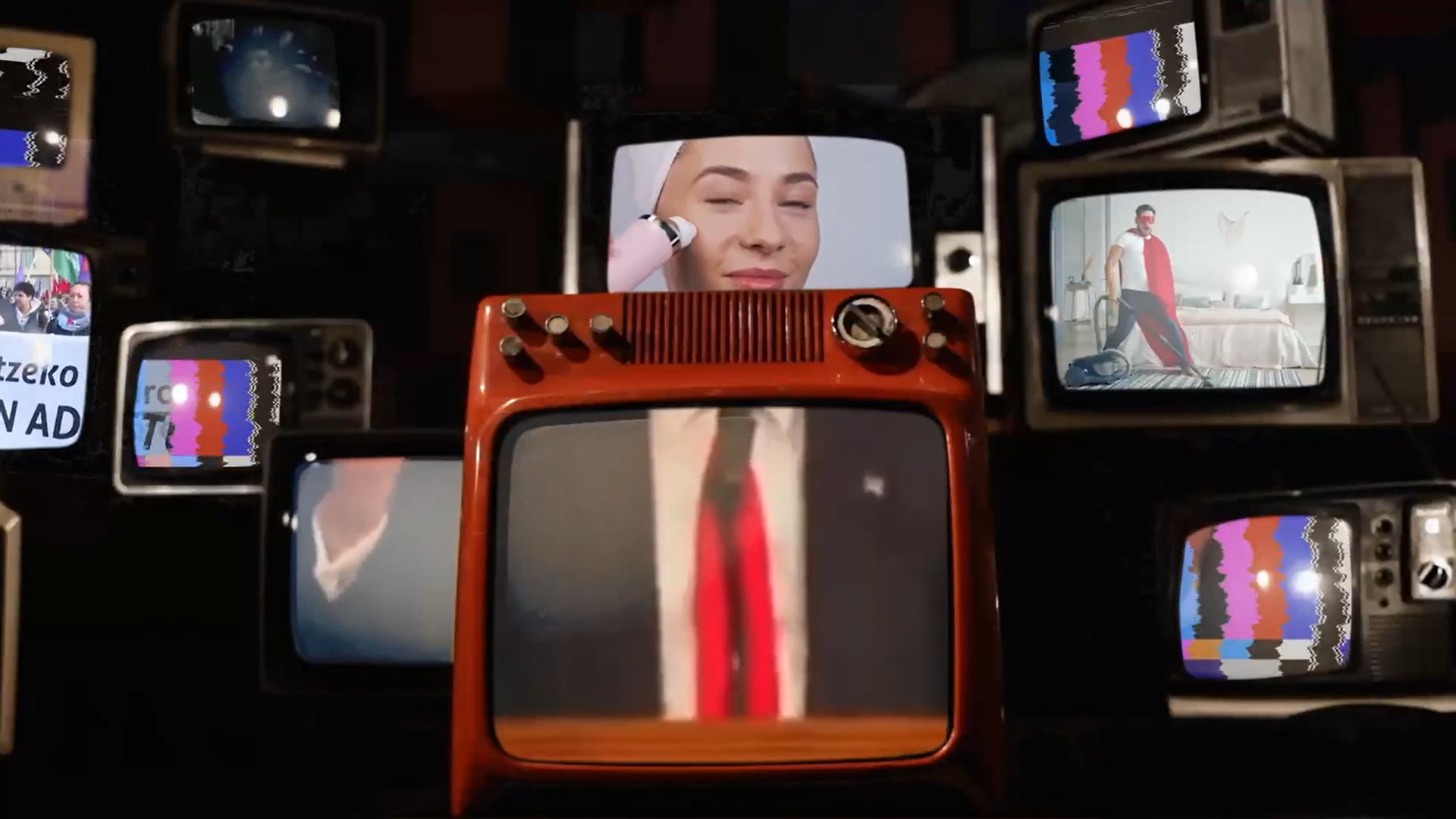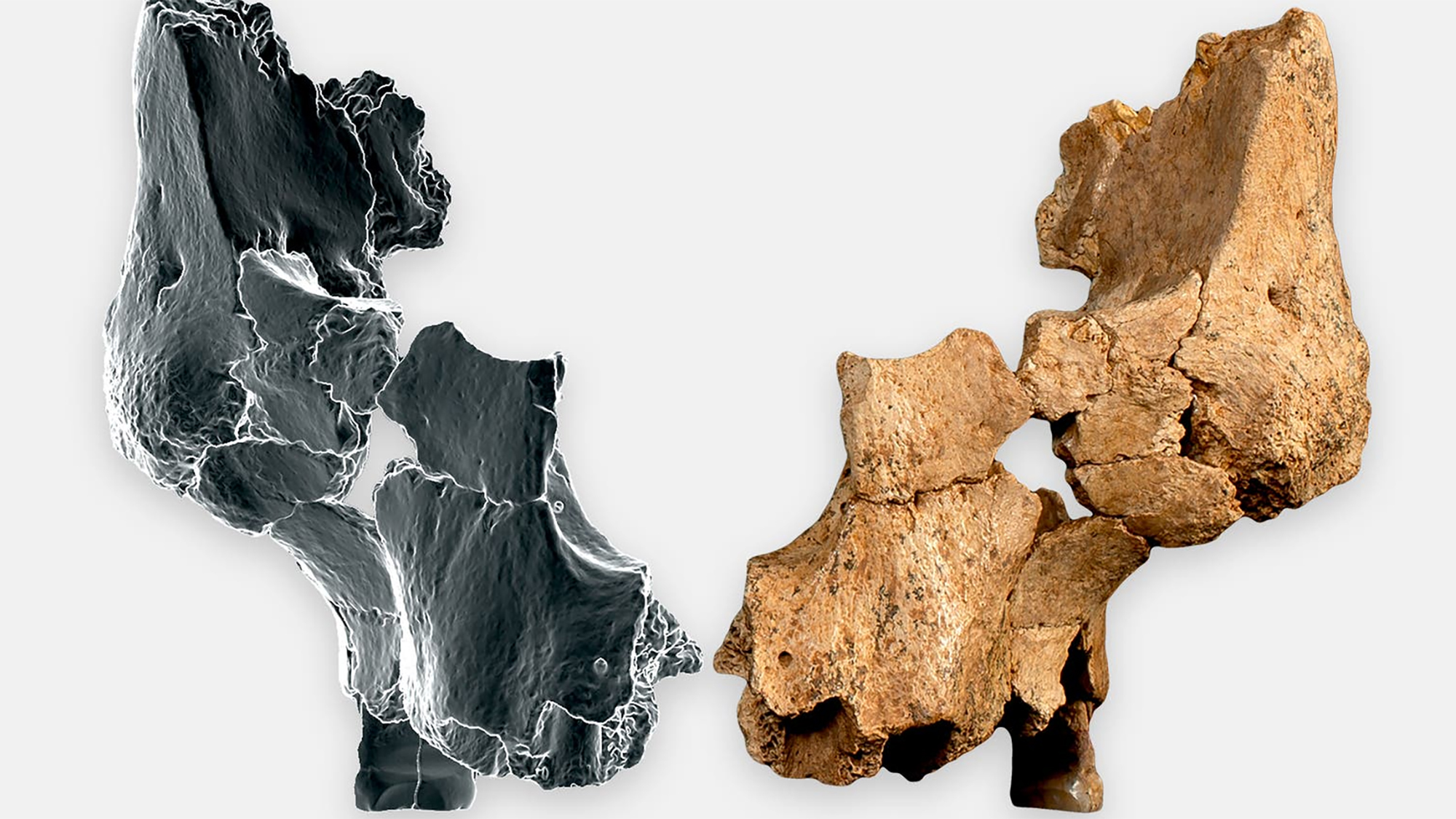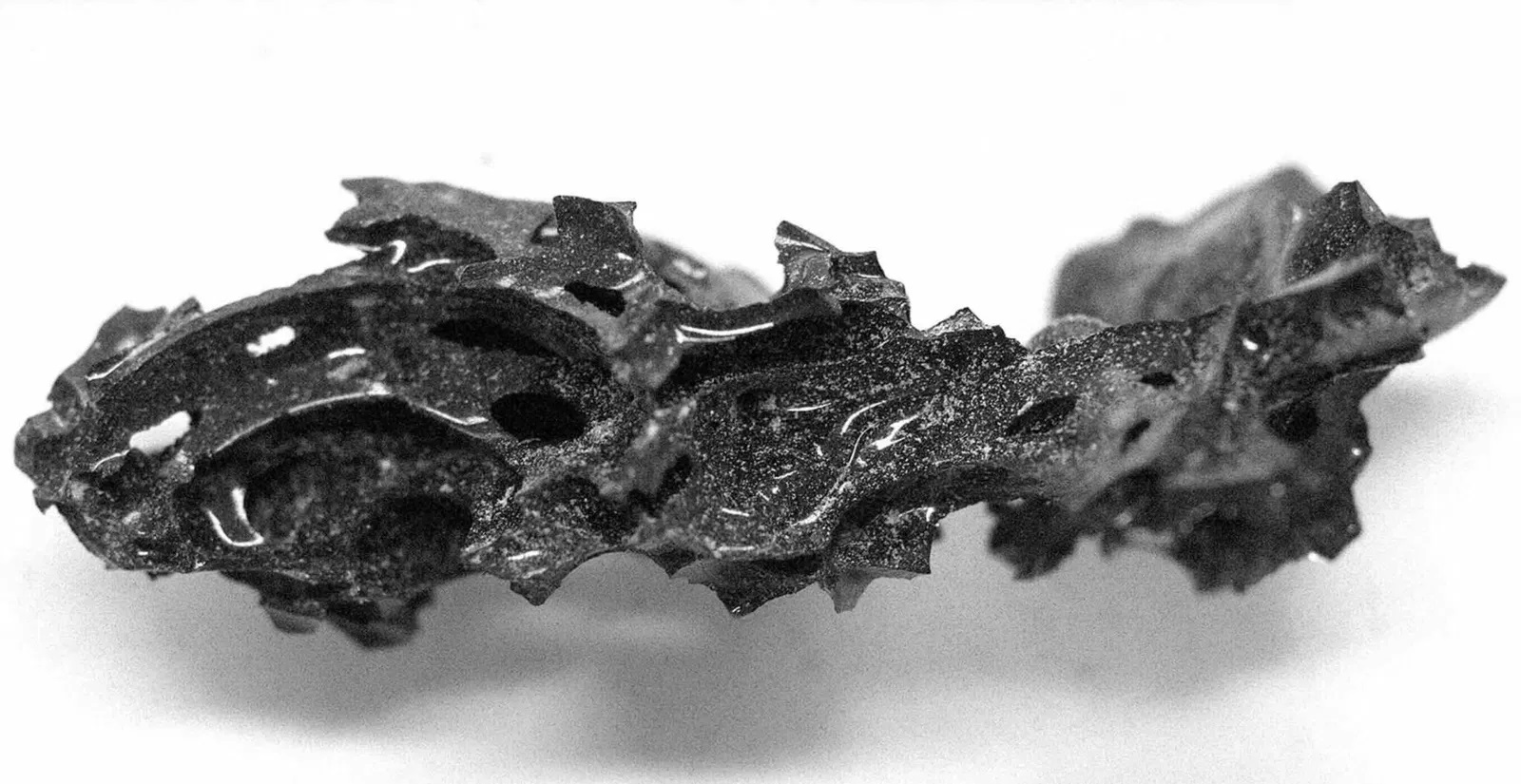"If it wasn't Altuna, my reality would have been completely different."
- Studying the shells of small fossils called foraminiferous allows you to get lots of data about sea temperature, water oxygen rate and other parameters. If El Bani had a shell, I would say a lot about our environment. But why haven't you waited to fossilize the carapace, if you can ask it directly?
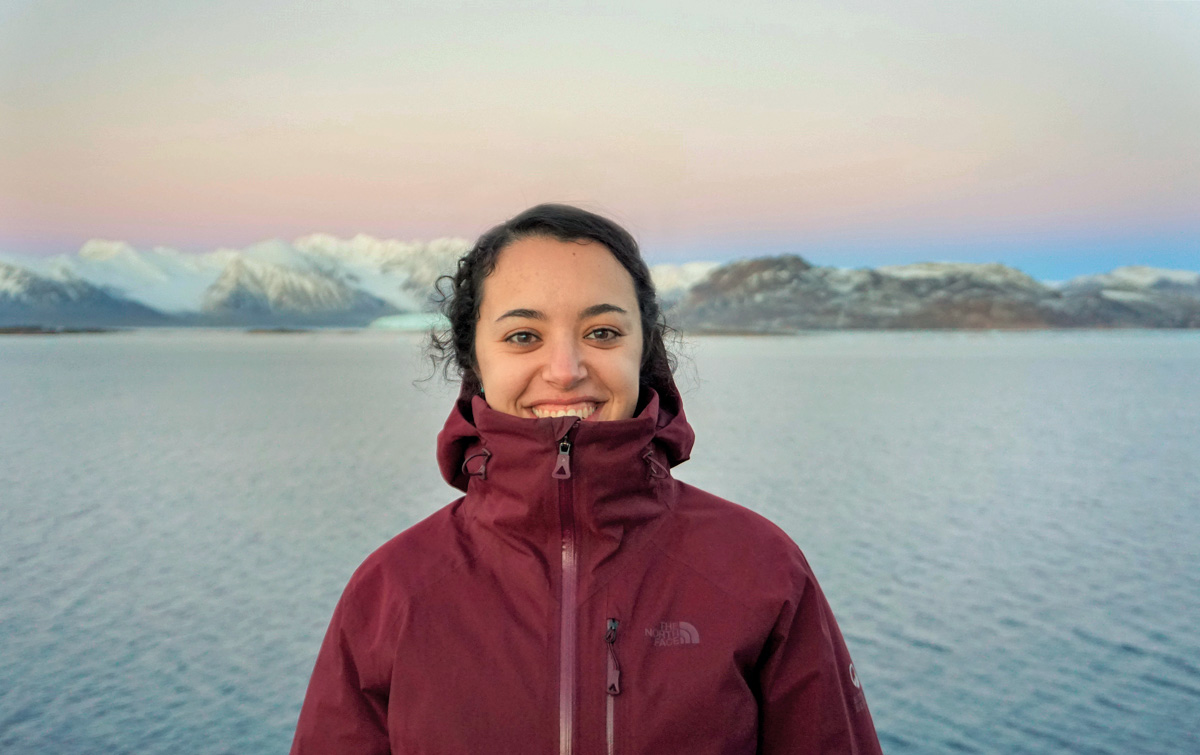
Paleozenografoa da. Geologia ikasi zuen EHUn, eta ordutik hona bere bizitza foraminifero izeneko itsas mikrofosilen ikerketari loturik dago. Bilbotik Bordelera joan zen paleozeanografia eta sedimentologia masterra egitera, handik Kanadara, eta azken hiru urteotan Artikoko foraminiferoak ikertzen dihardu Norvegian, Tromsøko Unibertsitateko Geozientzien Sailean.
How can we imagine a young geologist? Looking at the street stones? Do you charge in your pocket?
No, no. Stones didn't interest me. The sea does, but the stones do not. Geology never aroused my interest until I was 17 years old and traveled south of Norway by bus and camping with my mother and sister. So I saw the fjords, and it was the first time I had felt interest in geology.
By then I already knew I'd learn science, yeah. My mother is a biologist, and she was a teacher. Thanks to him, I have always liked science. Sometimes he would take us to the school lab and teach his stuff, or he would go to the market and bring us the heart of a pig to show us… I, in fact, wanted to study marine sciences. But for that he had to go to Galicia, to Tenerife or to Barcelona. And my mother wasn't very convinced. When I was 18 so far away… And he said, "Why don't you do a more general career and then you specialize in marine science?" After biology, marine biology, or geology, and then paleo-marine oceanography.” And that's what I did.
Is geology not a degree of exploitation of oil and gas?
No, no. It's more than that. I really liked the studies. I started seeing the world with other eyes. Through the streets of Bilbao, in the same city I saw red limestones of Ereño, which are found in the zaguares and in the portals... White spots appear, which are fossils; I don’t know how many millions of years ago they lived when Euskal Herria was tropical, literally. The Basque Country was much closer to the equator at that time, the sea was very shallow and there were a lot of coral reefs… Also think that the highest mountains of Euskal Herria that we see today are those coral reefs of then... I love understanding the world like this. I've changed my perspective. History. Time. Then I'm really impatient in fact and I don't know if that has led to direct changes in my personal life ... But I see my environment with other eyes.
And how do you get to investigate foraminers?As
I say, the sea has always attracted me. Not because we were growing up every weekend. I don't remember going to the beach with my parents. But my aunt lived in Deba, we were walking along the sea bank, gathering shells on the shore… I don’t know why I was attracted to the sea. But in spite of everything, when I got to do the graduate work, I asked if there was someone in the geology department who was investigating anything related to the sea. And I was introduced to Alejandro Zearreta. He told me that he had a project to reconstruct the evolution of the estuary of the Sea through the foraminers, who live in the sea and that in the terrestrial submarine sediments you can find fossils from these organisms.
In the estuary of Deba there is a meander, previously occupied by a hamlet, whose samples belonged to this study. My aunt took us to see the ducks in that hamlet. My aunt died when I was 15 years old and I thought, “This is a sign, this is my graduate work.” So I started studying the foraminers to study the development of the estuary of the Sea since the last age of ice. And I had a great time.
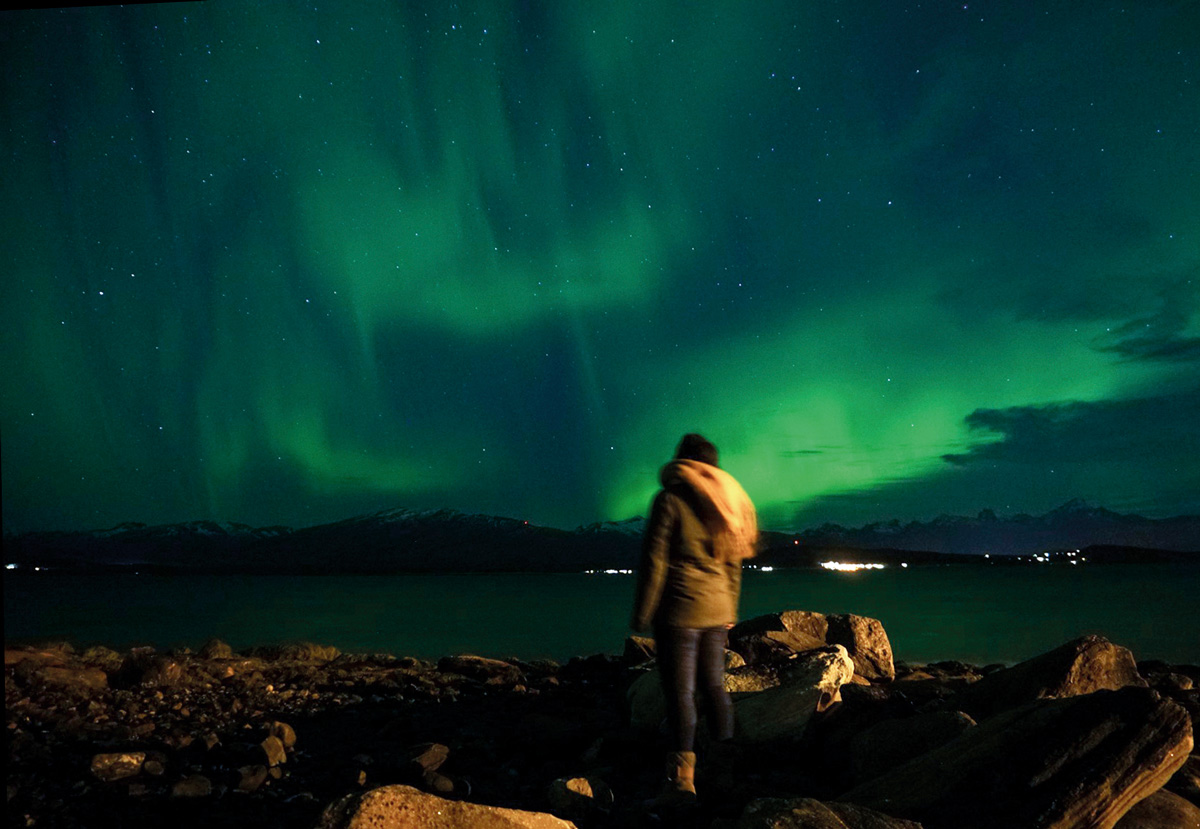
And the foraminers have brought you back to the fjords. To the source of your
geological interest… Yes, Tromsø is in a fjord, so now I live in a fjord. I finished my degree and went to study marine science in Bordeaux. There I spent two years and at the time of doing the final master's job I went to Frédérique Eynaud. He was also investigating foraminers. With the foraminers, I wanted to investigate the Gulf of Bizkaia or the area of the Atlantic Ocean of Morocco. And the woman has just investigated both of them. So I'm going to tell him straight away, and I said, “I want to do this.” And she said, "All right. Great. But, in a project that works with some Arctic samples, they need help with the foraminers to identify and order them... Would you like to participate?” What would I do? I said yes. The Arctic was very exotic. In the end, I did this work on the Arctic, and I was given a scholarship to participate in a Canadian research. While I was there, I received a job offer from the University of Tromsø to investigate the oceans of the past through foraminers. And here I am. Because I wanted to investigate the Gulf of Bizkaia.
What exactly do you investigate?
I study the chemical composition of the shell of the foraminers. Sampling of submarine soil and study of indigenous foraminers. The chemical elements of these shells tell us about the environment in which they lived. Magnesium, for example, is a temperature indicator. The higher the magnesium in his carapace, the higher the temperature he lived. Species also report. Some foraminers like to eat this type of algae, others like the consumption of oxygen-rich water, other warmer or colder waters… and each sample can provide a lot of information about the seas they lived in and about the climate. Because you have to understand the sea to understand the climate, and vice versa.
When this interview is published, you'll be on an expedition in the Arctic, collecting samples. What is an expedition in the Arctic?
There's a lot of work ahead. In it, it's usually three weeks. In most cases, in Barkua there are biologists, chemists and geologists. And sailors, captains, cleaners and engineers. 40 or 30 people depending on the size of the boat.
All sailors are men (I have never seen a woman). All cleaners. And also cooks. Except for the major cook. There's everything among scientists. My director is a woman and many of her collaborators are women. I've been on an expedition composed exclusively of women scientists. Engineers are usually men. And there, everyone.
We have a 12-hour work day. It's very tired. It's not office work, it's more physical work. Sampling and sampling. Because it's very expensive to take a boat of this kind out into the Arctic, we take samples as if it were within our lives. On this occasion we are going to take water samples from the pores of the rocky sediments, for example. But in addition, experiments are also carried out. And we also need to work together on this. Inside your turn, it can adapt anything. Auzolan. A boom with very specific procedures. The protocol clearly indicates who should do what, when, how… If it is not chaos. That is why it requires a great deal of preparatory work. And good humor for coexistence.
There's no internet. You have to bring books, download series, wool and needles to make knitting... because we have a twelve hour shift, but then come another twelve hours and what are you going to do? Watch the bunk of the Kamauk or the landscape. The landscape is wonderful. We have four thousand meters of water at our feet, but we don't realize it. Because the surface is freezing, you see a white desert. Nothing. Nothing. But from time to time, you can see seals, birds or whales. You see them bulging. How they flush -- and polar bears, too. I have only seen them once again. Two years ago. We were on the sea ice at 82nd latitude, and suddenly there was a mother and two offspring. In the kitchen they were preparing the food and they smelled it… The captain told us from the speaker and when we saw them we began to cry.

When it is not in the Arctic, it is in Tromsø. How does one live in Lapland?
Now! November is the saddest. The same month is very gray and towards the end begins the night of 24 hours. Change is progressive and gradually adapting. But it's very frustrating. In January the sun rises again and thanks very much. What is not progressive is that of plants. By May the snow melts and in a week passes from seeing it all to spring. Everything becomes green and where there was nothing grows almost overnight a one-meter floor. It's terrible.
Otherwise, you learn how to manage the shortage of light. Office members have lamps that simulate sunlight. I take vitamins every day, just in case. Some are more angry. I get tired. But in this situation you don't know how much is a lack of vitamin D, pandemic, or a bad natural mood!
Here's an old saying. “There’s no bad time, but bad clothes.” In other words, whatever the time, things have to be done. That there is no light? Take the front and dodge it. To the dark mountain? It would seem crazy to me before, but I have done so here. You have no choice! Here they are more directly related to nature. You can go to the mountain by public bus. At the lockdown, it was a government message to be at home, but please to leave, even if it was a bit. They don't get together with the people, but they go to the mountain. A turn out.
But, in order for you to get used to it, do you have to leave?
The same thing. The employment contract ends in May. From there I do not know where and in what work. Here I'm trying to find myself around me, but if I have to work in science, and stay in my field, I have to move. It can take a long time to achieve some stability. And constantly having to adapt to the new countries, to the new people and to the new cultures has its advantages – it has little time to get bored – but managing that mentally and emotionally is very heavy. You have to invest a lot of energy without knowing how long it will serve you.
I'm basically repeating what my father did. He was a sailor and he was given the opportunity to come from Casablanca to Bermeo to work. But their conditions for migrating are very different from mine. I'm not a migrant. I am an expatriate, entrepreneur… And those who come to Euskal Herria what are they?
Working in research necessarily implies a form of precariousness. In my intentions for my immediate future, it is not, for example, to have children, or I do not foresee other kinds of care, but if it were, it would be a problem. Hence the numbers. Among the PhDs, in geology, women and men are half and half here, talking in binary form. But if we go up the ladder, the difference is obvious. Here are only three geology teachers. My director was the first in 2004. In Norway, in 2021, they account for only 20%. Imagine. It is not that as the new generations come, this will change and the story of always. No. People are lost on the road and you have to see why.
When I was in Lapland, @Arctic opened a Twitter account to spread science in Basque, among other things. Why divulge in Basque? When I opened the
Twitter account in Basque, my colleagues here didn't understand it. What it is. Catalan? A dialect? It was hard to explain why he wrote in Euskera.
But I've learned geology in Basque. Also in Spanish, because some subjects could not be studied in Basque at the UPV/EHU. When I did Erasmus in Italy, in Italian and French in France. And I do research in English. I can do outreach in many languages, but I want to do it in Basque.
There are many people who disseminate in English even if it is not in English. And if people are making English, why do I also have to do it? I want my mother to understand what I do. Let my aunts know what you're feeling when you go to Deba beach. That on the one hand. And on the other hand, if we don't, who will? I don't want the Basque to break. We can give the Basque the courage we want, and give what I give to any other language. And to give that value is to be able to do everything in Basque, including science.

At first on your Twitter account, your name didn't appear. You were “a Basque in the Arctic” and had a photo of a foraminífero in the profile.
Indeed. Neutro-neutral. I was worried that I would delegitimize myself. I thought putting my name and my picture would take away value from people's eyes. For being a woman, for not having a Basque name… How Naima El Bani Altuna? What is that?
First of all, this field of research, besides being very male, is very white – man, white and heteronormative, if you have to say everything –. And our Basque setting, what I'm going to tell you… My skin color is not as dark as my father's, and that has given me many privileges. But I'm Naima, and I stand as a young boy saying that I have a Basque mother and a Moroccan father. So don't ask me where I am from, from Bilbao, but from where. And if I had to create that self-defense mechanism in my everyday life, I thought, "What am I not going to find on social media?" Once I got some success, I put the photo and the names and surnames.
I have often felt questioned about my relationship with the Basque Country. I have heard many times, for example, that I do well in Basque. Yes, of course! I have a lot of privilege and a lot of luck because my mother is a Basque and I am a Basque older. In some places it is not a privilege, at all, of the Basque, but in other spaces it is, and that has helped me a lot. If I were new Basque, or not Altuna, my reality would have been completely different.
Nortasuna Sarean jardunaldien 10. edizioa egingo dute asteazken honetan Donostiako San Telmon, KomunikaziONA bideguruatzean izenburupean. Egungo komunikazio joerak aztertu eta "alternatiba osasuntsuagoak" topatzen saiatuko dira. Hainbat hizlari gonbidatu dituzte, euren... [+]
Orain dela 20 bat urte, berrikuntzaren inguruan master bat egin nuen. Bertaraturiko gonbidatu batek esan zigun gizakion historian berrikuntza teknologikoaren eragile handiena gerra izan zela. Gerra, halaber, eragile handia da botere harremanen berrikuntzan.
Berrikuntzaz ari... [+]
Punto Bobo liburuaren irakurketan murgilduta, Itxaso Martin Zapirain egilearen Eromena, Azpimemoria eta Isiltasunak Idazten ikerketa lanean sentitu nuen egiazkotasun eta maila etikoarekin egin dut berriz ere topo. Eta hortaz, hara bueltatu. “Oihu izateko jaio zen isiltasun... [+]
Puntueusek eta Cyberzaintzak elkarlanean ikusentzunezko baliabide pedagogiko bat sortu dute gazteentzat eta haiekin lan egiten duten profesionalentzat: irakasle, guraso eta hezitzaileentzat. Ikusentzunezko honen bidez, ziberjazarpena ezohiko ikuspegi batetik... [+]
Aranzadi Zientzia Elkarteko Etnografia Sailaren zuzendari berria da Maite Errarte Zurutuza (Beasain, 1995), urrian Fermin Leizaolaren lekukoa hartu ondoren. Kultura materiala aztertzen jarraitzeko beharra azpimarratu du, gizartearen memoria eta bizimodu aldaketak erregistratzeko... [+]
Aspaldi pertsona oso zatar bat ezagutu nuen, urrun izatea komeni den pertsona horietako bat. Bere genero bereko pertsonengana zuzentzeko, gizonezkoengana, “bro” hitza erabili ohi zuen. Edozein zapaltzeko prest zegoen, bere helburuak lortzeko. Garai hartatik hitz... [+]
La bajona kolektibo kide Heiko Elbirak salatu du psikiatriak zisheteroarautik aldentzen diren erotikak kontrolatu nahi dituela.
Atapuercako aztarnategian hominido zahar baten aurpegi-hezur zatiak aurkitu dituzte. Homo affinis erectus bezala sailkatu dute giza-espezieen artean, eta gure arbasoek Afrikatik kanpora egindako lehen migrazioei buruzko teoriak irauli ditzake, adituen arabera.
Chão de Lamas-eko zilarrezko objektu sorta 1913an topatu zuten Coimbran (Portugal). Objektu horien artean zeltiar jatorriko zilarrezko bi ilargi zeuden. Bi ilargiak apaingarri hutsak zirela uste izan dute orain arte. Baina, berriki, adituek ilargietan egin zituzten motibo... [+]
Sare sozialetan badira zenbait pertsona eragin gaitasun handikoak. Jarraitzaile ugari dute, eta euren iritziak egiatzat hartzen dira. Askok, ordea, egia barik, interes propioa edo klase baten interesak iraunkortzea bilatzen dute. Ameriketan komentokrata deitzen zaie. Alegia,... [+]
79. urtean, Vesubio sumendiaren erupzioak errautsez eta arrokaz estali zituen Ponpeia eta Herkulano hiriak eta hango biztanleak. Aurkikuntza arkeologiko ugari egin dira hondakinetan; tartean, 2018an, gorpuzki batzuk aztertu zituzten berriro, eta ikusi zuten gizon baten garuna... [+]
Ortutik itzuli berritan erabaki nuen Twitterretik alde egitea, oraindik Twitter zenean. Auzolan batera joan nintzen, brokoliak eta azaloreak landatzera, eta mindfulness efektua zapuztu zidan algoritmoak, idazle feminista transgorrotatzaile baten txioak jaurtitzearekin... [+]
Iragana ulertzen saiatzen eta etorkizuna bideratzen, oraina joaten zaigu zenbaiti. Nire proiektuetako bat (hasi baina landu ez dudana oraindik) dudan zuhaitz genealogikoa egitea da. Horretan lagunduko didan liburutxo bat ere erosi nuen. Baina, hain da handia lana, liburutxoa... [+]











